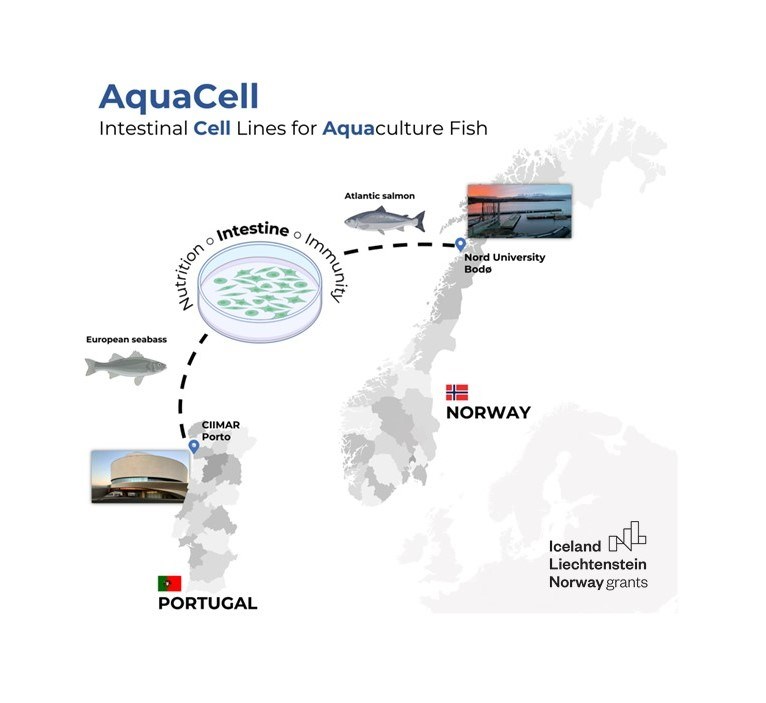AquaCell
AquaCell

Promoter: CIIMAR - Centro Interdisciplinar de Investigação Marinha e Ambiental
Partners:Faculty of Biosciences and Aquaculture, Nord University (Bodø), Norway.
EEA Grants: 14 293,13 €
Total Amount: 15 881,26 €
Grace Code: PT-BI059
Programme:What did this initiative focus on?
CIIMAR, the promoter of the initiative, and the University Nord have focused on the same problems - fish health and welfare of aquatic animals - from different perspectives and using different animal models (European sea bass, Atlantic salmon) so this bilateral initiative will enhance the sharing of scientific and technological knowledge.
With the increase in world population, the importance of aquaculture as a food production sector has been increasing. However, the intensification of aquaculture fish production is often associated with an increase in outbreaks of diseases caused by pathogens. In recent years, the aquaculture industry has made an effort to find natural sources of bioactive products with the ability to improve fish robustness. These studies require, however, the use of large numbers of animals for experimentation and high economic costs. The intestine of fish plays an essential role not only in their nutrition, but also in their immune response.
Therefore, the AquaCell project aims to develop intestinal cell lines from European sea bass and Atlantic salmon, two aquaculture species with high economic value in Europe. These cell lines may be used in the future to test new products and determine their potential for inclusion in animal feed, reducing the number of fish used for animal experimentation.
The results of this bilateral initiative are therefore expected to contribute to:
- the development of new strategies capable of improving fish robustness, thereby reducing the need for antibiotics while increasing the efficiency of commercial production and the sustainability of the aquaculture sector;
- reduce the use of animals and associated costs required for in vivo experiments by taking advantage of the in vitro intestinal cell line that will be developed.
AquaCell thus aims to provide the scientific community with an innovative experimental tool that contributes to the sustainability of the aquaculture sector.
Related Content